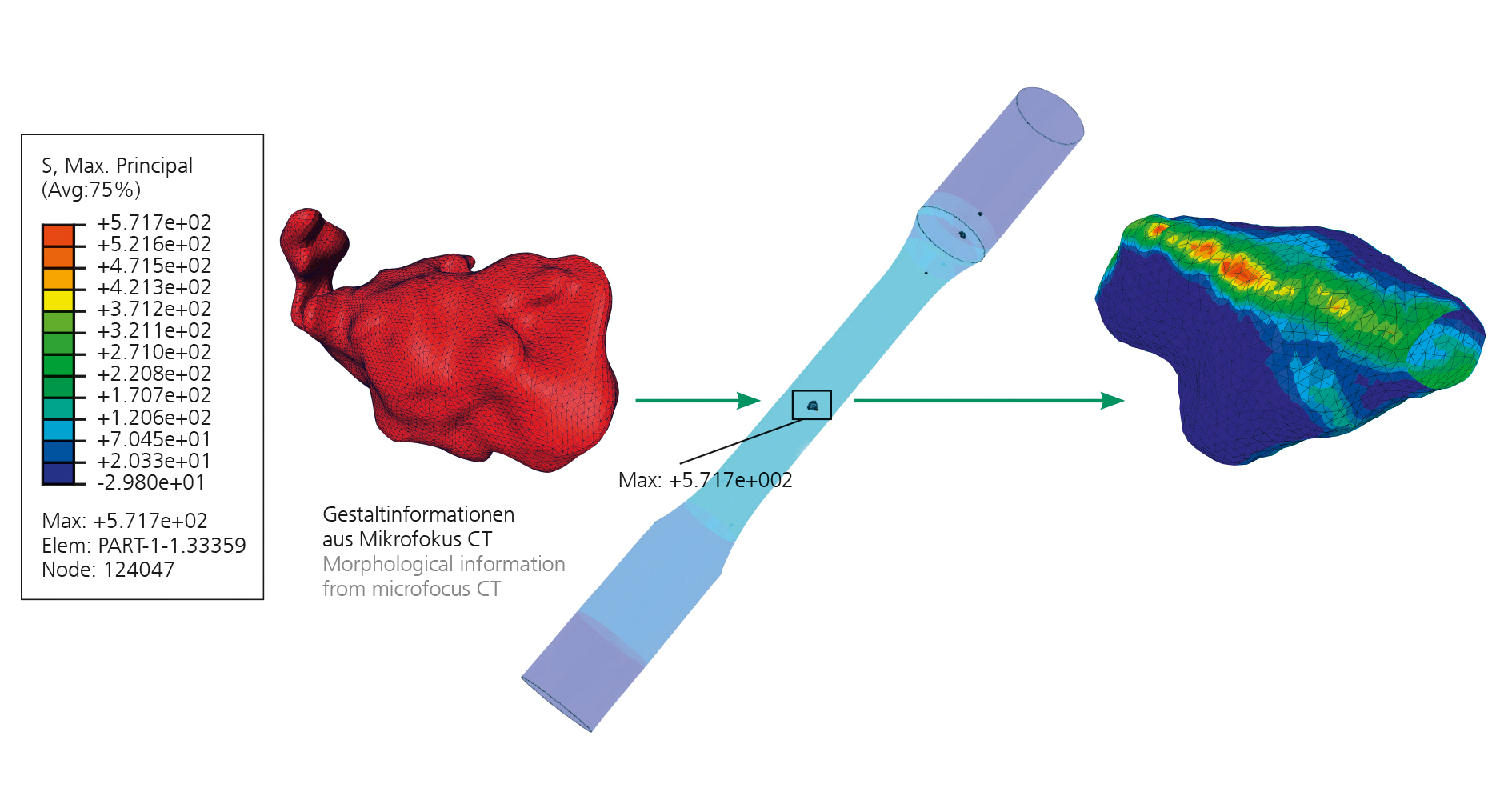The production of aluminium castings depends on material-efficient, low-cost design strategies. Being able to reliably ensure the mechanical properties of aluminium castings is a necessity in order to get a real edge over competitors. This is possible by monitoring the strength properties from product development through to volume production.
Competitive edge by reliable assurance
Non-destructive assessment of aluminium castings
We carried out non-destructive fatigue strength tests of aluminium alloy specimens with the help of computed tomography. Based on the determined three-dimensional geometry data of the pores, we then deduced relevant parameters. Then, we analyzed and quantified the effects of porosity with regard to local stresses in the structure, taking account of shape, size and position of the pores. Subsequently, in a first step, finite element models for spherical pores were developed, in which the analyzed structures are appropriately simulated in terms of internal stresses.

In further steps, finite element models of the close-to-real structural homogeneities were created. Based on the microstructures in aluminium specimens which were reconstructed with the help of computed tomography, the micromechanical stresses were simulated and parameterized. Further, the internal notch effect was correlated with the characteristic geometry parameters of the pores. From these results, we then derived a parameterized service-life model. We then subjected the unnotched specimens to fatigue strength tests, in order to validate the model. The developed service life model enables three-dimensional sample components to be deduced, which show the admissible degrees of porosity.
Basically, this opens up the possibility of quantitatively assessing the fatigue strength of aluminium castings on the basis of non-destructive testing methods without real tests or FEM calculations.
This method was developed in the AiF research project EPOS (Development and integration of assessment criteria for quality assurance and component calculation, taking account of the influence of pores and non-metallic inclusions on the fatigue strength of aluminium casting alloys) of the German Foundry Industry Association (BDG) (project no. 295 ZN, AiF report no. E-376).
 Fraunhofer Institute for Structural Durability and System Reliability LBF
Fraunhofer Institute for Structural Durability and System Reliability LBF